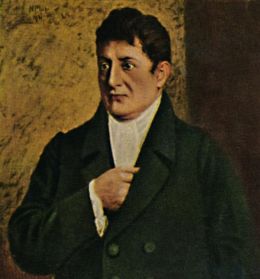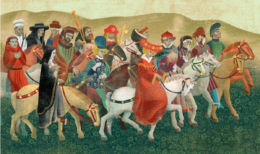
Nick Lowles, founder and Chief Executive of the antifa organization Hope Not Hate. (Image source: Gov.uk)

Nick Lowles, founder and Chief Executive of the antifa organization Hope Not Hate. (Image source: Gov.uk)
2,616 words
The first point in occult science is by no means the advancing of assertions or opinions which are to be proven, but the communication, in a purely narrative form, of experiences which are to be met with in a world other than the one that is to be seen with physical eyes and touched with physical hands. — Rudolf Steiner, An Outline of Occult Science (more…)










